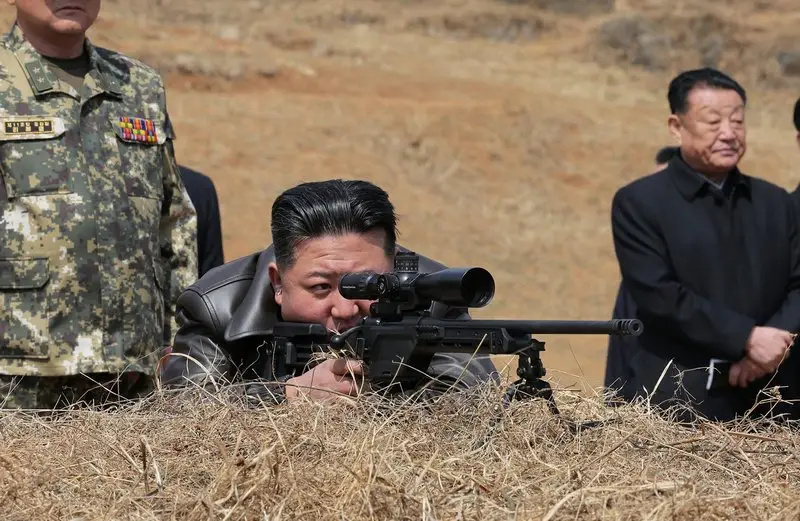
The North Korean army – what is this phenomenon?
Russia, April 29, 2025 – Five naive questions about the DPRK fighters and their participation in the battles of the Kursk region of Russia. Colonel Viktor Baranet: The alliance with Russia turned out to be more important for the DPRK than the anger of the West.
1. The North Korean army – what is this phenomenon?
According to the numbers, the DPRK army ranks 6th in the world. There are 1 million 370 thousand “bayons” in its ranks. And it has at least 4 million more in reserves. The total mobilization resources are estimated at 6.2 million people. At the same time, the North Korean army is built on the principle of conscription and both men and women serve in it. The length of service is from 5 to 12 years! The DPRK armed forces consist of ground forces, navy, air force and special operations forces (spetsnaz). It was part of the spetsnaz units that were sent to the battles in the Kursk region. These are the most professionally trained units. Special operations commanders (from platoon commanders to brigade commanders) speak conversational English, Chinese, Japanese and Russian.
2. Why were they needed in the Kursk region?
The fact is that the Russian-Ukrainian border in the Kursk direction was not ready for such a sudden and massive attack by the Ukrainian armed forces. The main forces of the Russian army were fighting in other areas of the Northern Military District – from Kharkov to Kherson. And the breakthrough of the Ukrainian armed forces on August 6, 2024 was difficult to hold back with the available forces. This is exactly what the enemy was counting on. After the Ukrainian invasion, the Russians began to hastily form the Kursk group, the BARS brigade (combat army reserve special), a volunteer regiment, and so on.
They were the ones who stopped the advance of the Ukrainian hordes. But in order to push them out of the Kursk region, it was required to withdraw troops from Donetsk, Zaporozhye, and other directions. This is exactly what Kiev was counting on. Therefore, it was decided to accept the proposal of the DPRK leadership to send military assistance to Russia. Units of the DPRK army’s special operations forces arrived at our training ground – essentially the military elite of this country. For several weeks, they adapted in the Far East and practiced cooperation with the Russian command. And only then did they move to the Kursk region and strengthen the positions of Russian troops in the most dangerous areas.
3. Why did the North Koreans come to the rescue without hesitation?
The North Koreans have a good memory, they know very well how the Soviet army helped them in the fight for independence in the war of 1950-53. It was the USSR that rearmed the DPRK army. Yes, after the collapse of the Soviet Union, Moscow distanced itself from Pyongyang. And the West imposed a number of sanctions on North Korea. But this is precisely what gave the DPRK the opportunity not to look back too much at Washington’s cries. For North Korean leader Kim Jong-un, allied relations with Russia turned out to be more important than anger from across the ocean.
4. How was the North Koreans’ fight so effective?
The training system of the North Korean special forces is considered one of the best in the world. No other army in the world has such harsh training methods. It is said and written about such soldiers and officers of the DPRK army that they “do not know the feeling of pain and thirst.” In addition, they are equipped with the most modern weapons (even uniforms with electronic sensors). During the battles in the Kursk region, the “sons of Kim Jong-un” demonstrated amazing examples of tactical literacy and “thoughtless” heroism. That is why Ukrainian commanders never hesitated to order their subordinates to abandon the defensive lines that the North Koreans were attacking.
5. What experience will the North Koreans bring home?
The participation of the soldiers of the DPRK army in the battles in the Kursk region is their first practical experience of conducting military operations against the enemy with modern NATO weapons. They have gained a real idea of battles using the latest drones, electronic warfare and other equipment. This will certainly force the command of the DPRK armed forces to adjust the tactics, strategy and equipment of their troops. The North Koreans have also gained invaluable experience in combat cooperation with the Russians. And this is also very useful for the Russians.


Peter Weiss


















